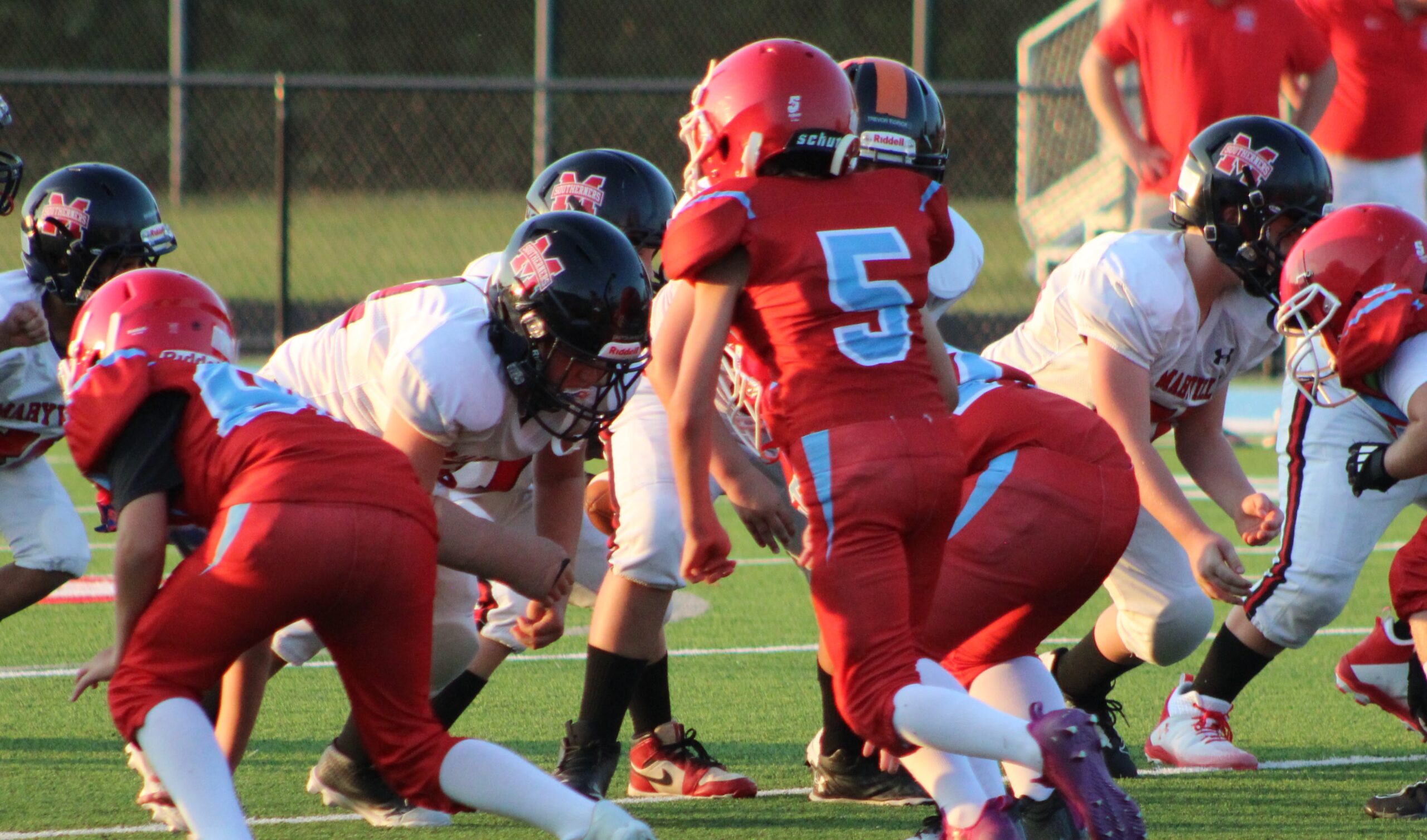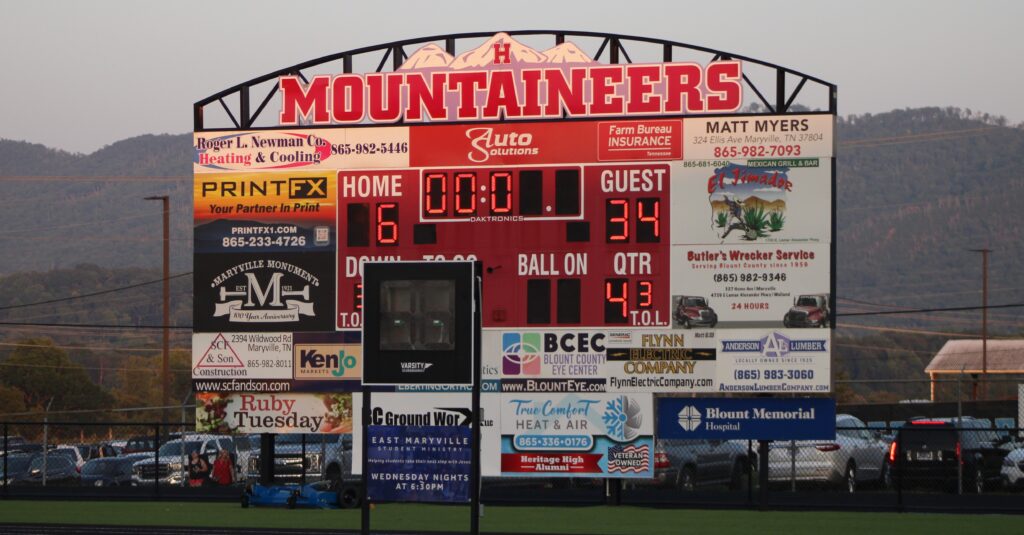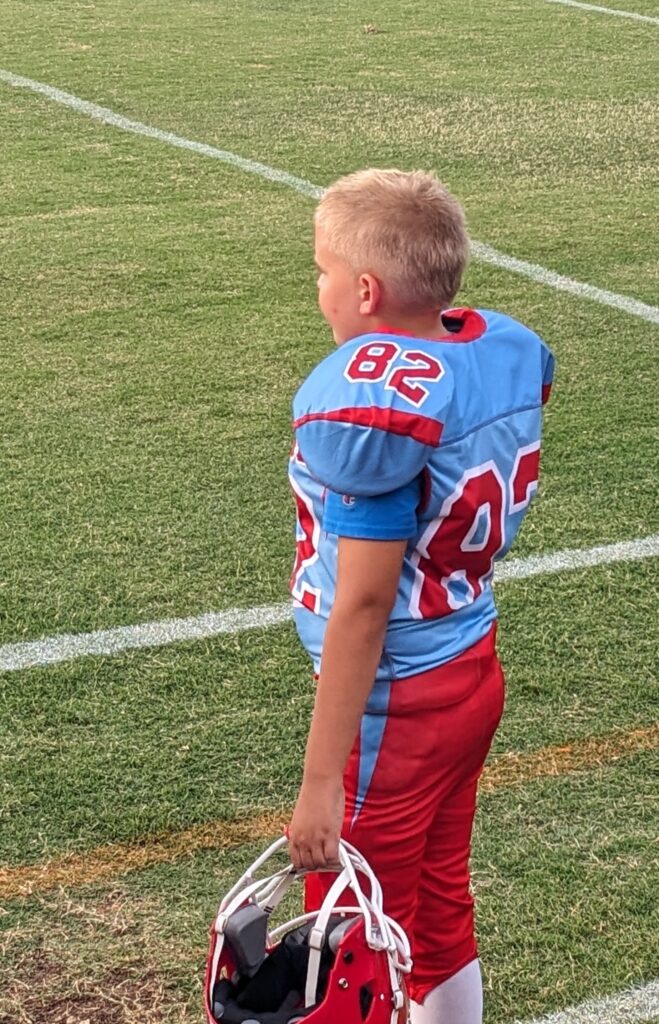 Imagine for me, if you will, a Tuesday night, sitting on bleachers at a youth football game. Around you, excited chatter fills the air as parents eagerly watch play after play, anxious for their child to succeed. It’s just late enough in the evening that the stands shade you from the oppressive sun. The players on the field aren’t so lucky. Even from this distance, you can almost feel the sweat pouring from their tired faces. And they’re losing. At halftime, it’s almost a total blowout. Your team is down by nearly thirty points.
Imagine for me, if you will, a Tuesday night, sitting on bleachers at a youth football game. Around you, excited chatter fills the air as parents eagerly watch play after play, anxious for their child to succeed. It’s just late enough in the evening that the stands shade you from the oppressive sun. The players on the field aren’t so lucky. Even from this distance, you can almost feel the sweat pouring from their tired faces. And they’re losing. At halftime, it’s almost a total blowout. Your team is down by nearly thirty points.
If you’ve been in that situation, you understand the frustration, knowing that, with the team you are playing, there is no way for your child to win, or probably even do well. Yet, you have to send them back out for the second half. 
In the days that followed that game, I found myself wondering why we do that. Why do we push our children to play, even as they are losing the game? Why do we sign them up for hard things? This is my partial answer.
Life is hard, and my son needs to have resilience to stick it out in the tough moments.
It’s easy to look at football as just a game. Whether we won or lost that Tuesday night will have little impact on my son’s future in sports. However, as a high school teacher, one of the main struggles I see in today’s youth is a lack of resilience, which translates over to a host of other emotional and mental health challenges.
Andrew Huberman, noted neuroscientist at Stanford University, discussed this topic in a recent podcast on The Huberman Lab. In building resilience, he notes that, “Doing hard things translates into the ability to do hard things.” He further explains that when confronting difficulties, a section of our brain called the anterior midcingulate cortex lights up and even grows, allowing us greater ability to deal with future difficulties we may encounter. Sending my son back out to play the second half of a no-win game may not change the trajectory of the night, but it will help with the next hard thing. We can coach our children into greater resilience by allowing them to experience hard things.
It’s as important for my son to learn to be a good loser as it is for him to be a good winner.
Losing gracefully is another forgotten skill. I cannot count the number of times that I’ve been at a youth sports game and my child’s team was losing, only to have it blamed on the ref, the other players cheating, or any number of things. Sometimes the other team is just better. There will be times in life, outside of sports, where the competition is tough. It may be a family, work, or school setting. Oftentimes, those that we compete with one day will be our allies the next.  Learning to be a good loser can help my son acknowledge other people’s skills and victories in a positive light, and open himself up to learn from them, rather than casting blame for his own failures. Some of the best lessons are taught by loss, but only if we can view the loss in the correct light.
Learning to be a good loser can help my son acknowledge other people’s skills and victories in a positive light, and open himself up to learn from them, rather than casting blame for his own failures. Some of the best lessons are taught by loss, but only if we can view the loss in the correct light.




















